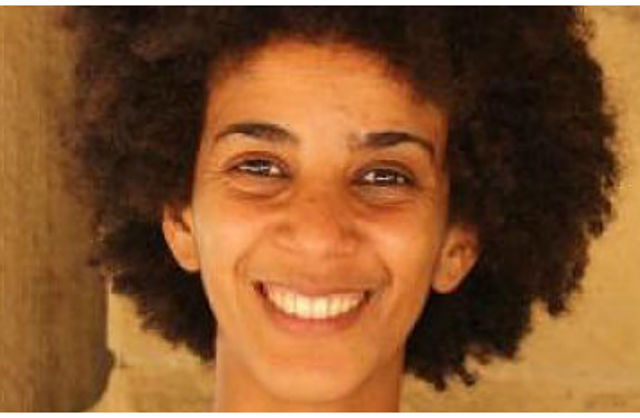 Timnit Gebru, a Computer Science PhD Candidate at Stanford University emphasizes inclusion and diversity in the artificial intelligence field. (Photo: Stanford)
Timnit Gebru, a Computer Science PhD Candidate at Stanford University emphasizes inclusion and diversity in the artificial intelligence field. (Photo: Stanford)
Tadias Magazine
By Tadias Staff
Published: May 22nd, 2017
New York (TADIAS) — Last week Forbes Magazine featured Ethiopian-born Timnit Gebru among 21 incredible women behind artificial intelligence research that’s fueling new discoveries in the field. “You already know that artificial intelligence is transforming virtually every industry and function,” the business publication wrote. “But you might not have met the brilliant AI researchers and technologists driving the edge of innovation.”
Timnit Gebru, who came to the United States when she was 16 years old and is currently a PhD candidate at the Stanford Artificial Intelligence Laboratory, states “my main research interest lies in data mining large scale publicly available images to gain sociological insight, and working on computer vision problems that arise as a result,” adding that her “research is supported by the NSF foundation GRFP fellowship and currently the Stanford DARE fellowship.”
Forbes highlights that Timnit also “actively works to boost diversity and inclusion in the field of AI.” After noticing that she was the only black woman at a major AI conference, she co-founded the social community Black In AI to drive connection and participation in AI research. In addition Timnit returned to Ethiopia to co-teach AddisCoder, a programming bootcamp, to a diverse range of young students and to help them gain admissions into top U.S. colleges.
“This is the most diverse/inclusive classroom I have ever been in,” says Timnit regarding her Ethiopia experience. “All regions of Ethiopia were represented with many religions and at least 10 languages (there were 85 students). There were different income levels ranging from students working as shoe shiners to put themselves through school to kids who went to private middle schools. Some kids had never touched a computer before while others have programmed in Java. But all of them currently understand the basics of recursion, dynamic programming, graphs etc. And they only took this class for one month. I hope to one day see a computer science classroom in the U.S. that is this diverse.”
Forbes notes that “since AI affects all aspects of society, even being used to manipulate elections and identify criminals, Gebru cautions that “AI researchers should not be silent regarding the repercussions of their work. Only when technology creators tend to inclusion will the exponential benefits of artificial intelligence positively impact all.”
—
Related:
The Economist appluads Timnit Gebru’s recent work: A machine-learning census of America’s cities
Spotlight: TADIAS Interview With Solomon Kassa, Host of TechTalk on EBS
Join the conversation on Twitter and Facebook.

























